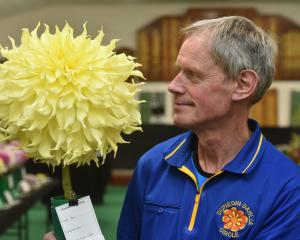
Prof Robert Patman was speaking ahead of a visit to Dunedin by Acting Prime Minister and Foreign Affairs Minister Winston Peters, who will give the opening address at the university's 53rd annual Foreign Policy School tomorrow.
Prof Patman is co-director of the latest three-day school, which this year will focus on ''Asia-Pacific Diplomacy in Transition: Ideas, Issues and Institutions''.
About 160 people are expected to attend.
New Zealand had previously tended to rely on countries such as the United Kingdom and the United States to promote rules-based multilateral approaches to trade and other issues of importance for small and middle-sized democracies, Prof Patman said this week.
But Britain was moving away from the European Union through Brexit.
And under President Donald Trump, the US was imposing unilateral tariffs, including on imports from the European Union and China.
''We can no longer rely in the same way on friends like the UK and USA.''
Being able to speak up clearly and more actively for our own country was a ''hard-headed'' necessity to protect our interests, and not merely a ''wishy-washy, let's find our voice'' approach.
It was also important New Zealand should not uncritically endorse the US position in all cases, or overlook important issues, including human rights, in dealing with China.
It was fitting Mr Peters had successfully advocated increasing the number of Ministry of Foreign Affairs and Trade diplomats, and also boosting New Zealand's Pacific aid programme.
''I fully support Mr Peters' strengthening of Mfat''.
Prof Patman also supported the aid changes, given the need to adopt a ''more active international role''.
The Asia-Pacific region had been affected by a growing tension between ''deepening globalisation - a process powered by revolutionary changes in communication and information technologies that had made states more interconnected and more vulnerable'' - and the revival of ''Great Power rivalry''.
Some people had retained ''the old-fashioned mental map that big countries run the world'', but the world had actually ''moved on''.
Mr Trump had imposed tariffs to protect American manufacturers but these were already having ''unintended consequences''.
Comments
The UK has rejected a political union with the EU but no evidence to suggest this can be taken as rejection of rules based trade or the the country being less of a friend to New Zealand. However, good for New Zealand to make its voice heard.














